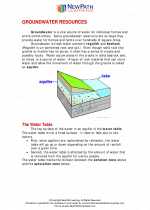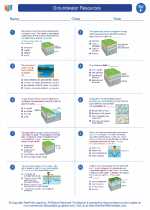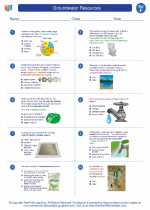Cellular Function
Cellular function refers to the processes that occur within a cell to maintain its life and functionality. These processes include metabolism, transport of molecules, communication within and between cells, and reproduction. Understanding cellular function is crucial for understanding how organisms grow, develop, and respond to their environment.
Key Concepts
- Metabolism: This is the set of chemical reactions that occur within a cell to maintain life. It includes processes such as energy production, synthesis of molecules, and breakdown of nutrients.
- Transport of Molecules: Cells need to take in nutrients, eliminate waste, and communicate with other cells. Transport proteins and other mechanisms help in moving molecules in and out of the cell.
- Cellular Communication: Cells need to communicate with each other to coordinate their activities and respond to changes in the environment. This is often achieved through signaling molecules and receptor proteins.
- Reproduction: Cells reproduce to allow for growth, repair, and replacement of damaged cells. This can occur through processes such as mitosis and meiosis.
Key Processes
- Photosynthesis: In plant cells, this process involves the conversion of light energy into chemical energy, leading to the production of glucose and oxygen.
- Cellular Respiration: This process occurs in the mitochondria of cells and involves the breakdown of glucose to produce energy in the form of ATP.
- Protein Synthesis: Cells use the genetic information in DNA to make specific proteins through the processes of transcription and translation.
- Cell Signaling: Cells communicate with each other through signaling molecules such as hormones, neurotransmitters, and growth factors.
Related Topics
Understanding cellular function is essential for comprehending larger concepts in biology, including genetics, physiology, and ecology. It also provides insights into the mechanisms of diseases such as cancer, diabetes, and neurodegenerative disorders.
Study Tips
- Focus on understanding the key processes within the cell, such as photosynthesis, respiration, and protein synthesis.
- Use visual aids such as diagrams and animations to understand the complex cellular functions.
- Make connections between cellular function and real-life examples, such as how cells respond to changes in blood sugar levels.
- Quiz yourself on the different cellular organelles and their functions, such as the role of the mitochondria in energy production.
- Discuss the importance of cellular function in maintaining overall health and well-being.
Conclusion
Cellular function is a fundamental aspect of biology, and understanding it provides insights into the workings of living organisms at the most basic level. By grasping the key concepts and processes involved, students can build a strong foundation for further studies in biology and related fields.
.◂Science Worksheets and Study Guides Sixth Grade. Groundwater Resources

 Worksheet/Answer key
Worksheet/Answer key
 Worksheet/Answer key
Worksheet/Answer key
 Worksheet/Answer key
Worksheet/Answer key
 Vocabulary/Answer key
Vocabulary/Answer key
 Vocabulary/Answer key
Vocabulary/Answer key
